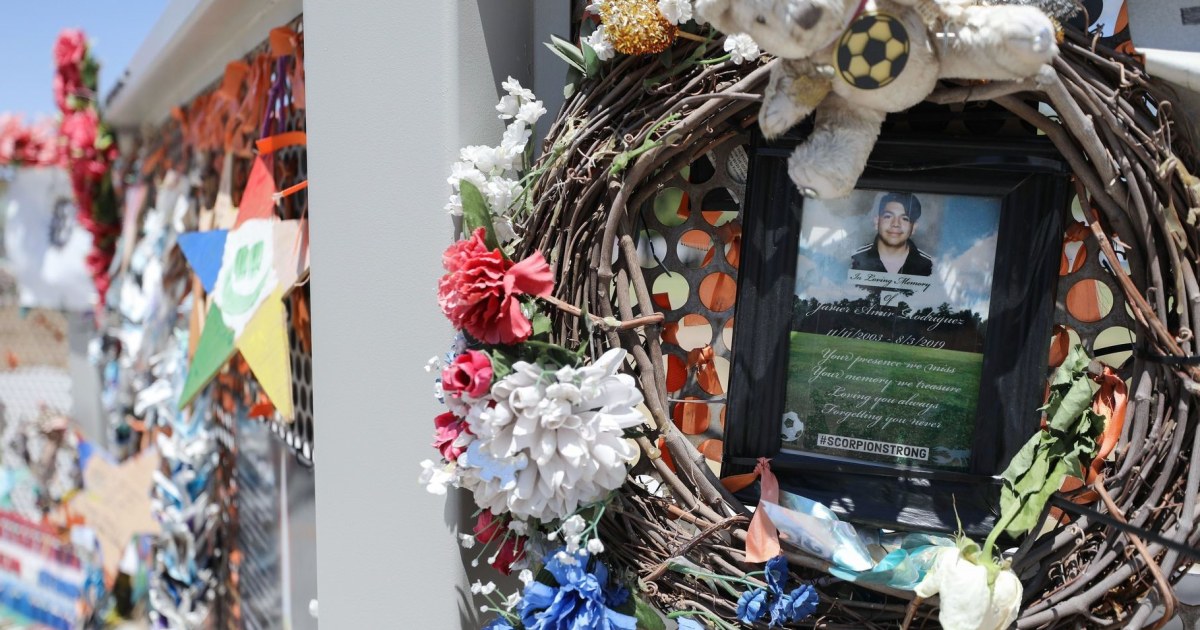Guatemalan director Jayro Bustamante, during the filming of 'La Llorona'.
It is not
La Llorona
that you imagine.
Jayro Bustamante's latest film (Guatemala, 1977) turns one of the best-known popular legends to tell the horrors of the genocide perpetrated in his country in the early eighties: dozens, if not hundreds of thousands of deaths and disappearances of indigenous people went unpunished, after a civil war that lasted for almost four decades.
On the fine line between what cannot be forgotten and what cannot be remembered, between the paranormal and the real, a general manages to free himself from the legal consequences of his actions, but not from the population's thirst for justice or for the spirits that will torment him until his last days.
After being nominated for a Golden Globe and selected as a finalist at the Oscars, Bustamante talks by phone about an unprecedented Hollywood opening to Central American cinema, how and why he turned magical realism into a battle cry, and his intention to transform the big screen is an escape valve for a region historically marked by violence, fear and repression.
What follows is a condensed and edited version of their responses.
Ask.
Did you imagine your movie would have such an impact?
Answer.
We honestly did not imagine anything that is happening to us.
Although we don't work for awards, we work to tell a story.
And when this started to happen, it filled us with joy and surprise.
I think it is important not to take it with emotion, but with intelligence so that the
momentum
does not pass us.
I say this not only for myself, but for all filmmakers in the region.
We have to understand that this is happening, that thanks to a film we all have light and that now we have to prepare.
I believe that when the great opportunities come to Central America, we are going to have to show that we can.
And so far we have shown that we can.
P.
At what point is the cinema of Guatemala?
A.
In Guatemala we produce an average of four films per year.
That is very, very little.
But if we take as an example last year, of those four films, one was in Cannes and won the Golden Camera. Another was in Venice and won the Venice Day award [
La Llorona
].
Another movie was in Berlin.
We are really having exposure and this is very important.
To this is added a slightly more international movement from Hollywood and is an opening towards the Latin voice.
Suddenly, we are no longer just consumers of soap operas and soccer, and we are already crossing the line of being only consumers of narco-stories.
We can also tell other types of stories.
I think this is really a time when we have to get on this wave and start developing an industry.
It is a job that I never imagined that I was going to play, but in the end it fills you with many satisfactions, different from awards, economics and the rest of the things we know.
P.
Much of what we know Central America is told from outside.
Why do you think it was important to tell this story with a vision from Guatemala?
R.
I do not believe much in borders or limitations of that type.
I believe that creativity has the ability to transform and that the more diverse points of view, the more interesting they are.
I am very grateful to all the directors and journalists who have done things about us, but in some way it is our responsibility to tell about us.
We are a region that only comes out of fear, a fear that forced us to be silent.
What I like the most is seeing that there are people who are overcoming those fears.
That means that the next generations will be less fearful and will be able to talk more.
Q.
How did the idea of telling one of the blackest episodes in the history of Guatemala with the legend of
La Llorona come up
?
R.
The desire was to speak of communist as an insult in the country and the distortions of that insult.
In Guatemala, the communist is the enemy of the state and is also used against defenders of human rights.
When you think that such an insult is used in Guatemala, you can understand that genocide can happen in the country.
That led me to talk about the genocide, about impunity, about how the trials [of those crimes] were taking place.
All these things invited me to create a fiction in which there could be a community catharsis, a space where we could invent a cry for justice.
I knew that it was very difficult for the local audience to accept it, so you had to go back to the traditional way of telling stories when they are hard stories: to fantasy, fairy tales or legends.
From there I grabbed
La Llorona
.
Horror was a very logical way of talking about genocide.
Then the
challenge
was more how to make the language of horror not eat the horror of genocide and that was the balance we tried to make to make it more of a magical realism movie and less a jump horror movie.
P.
The fact that magical realism becomes a way of doing justice to impunity has something fantastic and hopeless at the same time ...
R.
For me it is the reflection of what we have.
As we do not have protective states or states of justice, it is what we have as a resource.
Of course it is hopeless.
At the same time, magical realism and psychomagic are paths that we must not abandon.
Rituals are very useful for the human being, for personal catharsis or for doing psychological sanitation, but if we only have that, we will continue where we are.
Q.
Many people listen to
La Llorona
and imagine the typical Hollywood horror movie.
Did this concern you?
A.
I didn't think so much about what people were going to imagine.
I was thinking more about what I wanted to change to
La Llorona
.
I wanted to remove the machismo from the legend, which is new because the Mesoamerican versions are not based on that.
I wanted to change the fact that
La Llorona
in the cinema was always portrayed as a monster, when in reality she is a Mesoamerican princess.
If you notice, female monsters are always more monsters than male monsters, even Satan is depicted as a great knight in the movies.
Let's not say Dracula.
We wanted to bring
La Llorona
with the image of a righteous woman, dignified, with weight.
Q.
In the movie, guilt haunts the military.
Is there really this guilt among the elites for what happened?
A.
Completely.
It is a guilt that has been transformed into a distortion of truths and a way of denying the victims suffering.
There are many military elites who no longer agree with this, but if we go to the traditional and general, what they say is that all those people deserved to die.
And from there, socially we can go to discrimination, which is much more serious, and to the meritocratic system, in which we believe that people are screwed because they deserve it and that people get ahead because they deserve it.
It is not true.
People are screwed because we allow them that place of action.
It is that mirror of reflection that we wanted to pose in the film.
Q.
Has telling this story brought you retaliation?
A.
At the beginning, when we started filming, we had a kind of anonymous threats or warning tips, but not right now.
Yes we are afraid.
That is innate in us: the fear of repression.
I have also been the target of many insults.
There are those who believe that calling me a communist or a leftist is an insult.
Many times I have tried to explain that communism is one of the political ideas that attracts me the least, because I am not attracted to totalitarian ideas.
Q.
The Kaqchikel language is one of the great protagonists of your films.
Why have you decided to give it this boost?
A.
In
La Llorona
we use two Mayan languages: Ixil and Kaqchikel.
The Ixil, because it was the ethnic group most affected during the armed conflict.
The kaqchikel, because I grew up in a kaqchikel community.
My grandmother was a Kaqchikel.
I have very important ties to the community.
In a way, I have included it because it is the language in which I feel safe.
They are official languages in our country, but they do not have spaces and I hope that making them visible will contribute to strengthening the pride of our origins, which we deny so much.
Q.
Have you thought about what you would like to see happen at the next Golden Globes?
R.
I do not want to add the salt
(laughs).
When it suits me I am superstitious and religious.
P.
Does anything change that all this happens in the middle of the pandemic?
A.
Yes. For me the cinema is everything, but I cannot put my film before the general welfare.
It is what there is and with what there is we will do the best we can.
Subscribe here to the
EL PAÍS América
newsletter
and receive all the informative keys of the region's current affairs

/cloudfront-eu-central-1.images.arcpublishing.com/prisa/3A5FYN3IWJDH5BN5BHHOWHTNZY.jpg)




/cloudfront-eu-central-1.images.arcpublishing.com/prisa/SBPSZANFINCITELUZCPU7HSROM.jpg)


